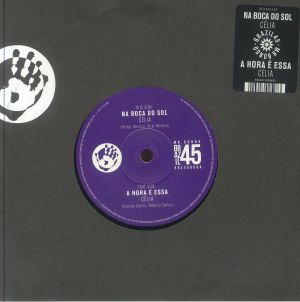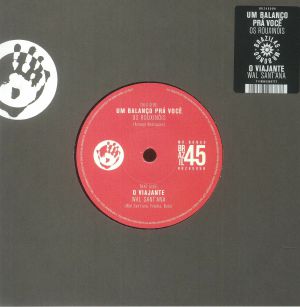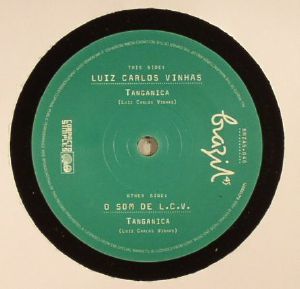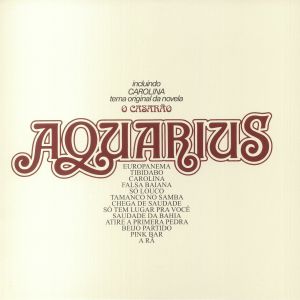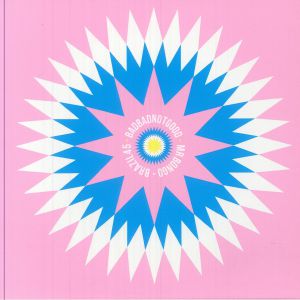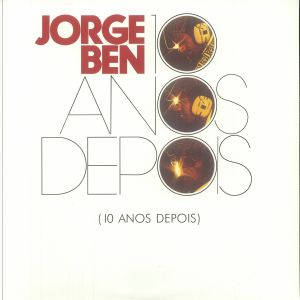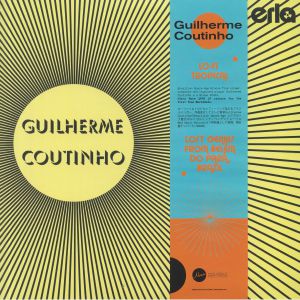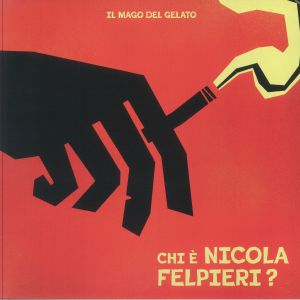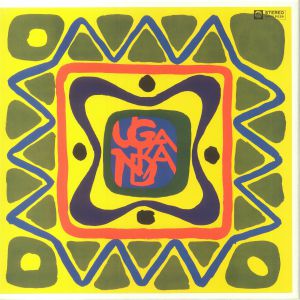Filter
Stock
Artist
Featured
Release Title
Price
Tags
62
MPB
27
Brazilian
21
Samba
16
Bossa Nova
16
Brazilian Funk
16
Brazilian Jazz
11
Psychedelic Rock
4
Jazz Funk
4
Psychedelic Funk
4
Psychedelic Jazz
3
Latin
2
Afrobeat
2
Brazilian Disco
2
Experimental Jazz
2
Japanese
2
Latin Funk
2
Latin Jazz
2
Psychedelic Soul
2
Turkish
1
African
1
Disco Funk
1
Ethiopian Jazz
1
European Experimental
1
French
1
Italian
1
Japanese Pop
1
Japanese funk
1
Salsa
Back catalogue: Jazz
Juno's full catalogue of Jazz
Singles
Dois Minutos De Um Novo Dia (limited 7")
Cat: BRZ45 048. Rel: 01 Jul 16
Played by: Afro Beat Foundation, I Love 45's!
in stock ₺494,87
in stock ₺527,06
Cat: BRZ 45080R. Rel: 20 Nov 24
Review: Number 80 in Mr. Bongo's Brazil.45 series shines a spotlight on two iconic 80s tracks by Brazilian legend Jorge Ben. The A-side features the infectious groove of 'Curumin Chama Cunhata Que Eu Vou Contar (Todo Dia Era Dia De indio)' from the 1981 Dadiva album and paying tribute to Brazil's Indigenous tribes. On the flip, 'Rio Babilonia' delivers a classic Brazilian-boogie vibe that celebrates life in Rio, its beaches and landmarks. Originally released in 1983, the track showcases arrangements by the legendary Lincoln Olivetti.
… Read morePlayed by: Juno Recommends International
in stock ₺428,92
Cat: BRZ45 011R. Rel: 20 Nov 24
Review: The reissue of Joao Bosco's 'O Ronco Da Cuica' alongside Antonio Adolfo E A Brazuca's 'Transamazonica' captures a slice of Brazil's musical brilliance. Bosco's track, originally from his 1976 album Galos de Briga, pulses with vibrant cuica rhythms, soulful vocals, and delicate acoustic guitar. On the flip side, Adolfo's 'Transamazonica' is a stunning piece of Brazilian jazz fusion, rich with dynamic instrumentation. This release brings these timeless Brazilian gems to a new audience, reintroducing their infectious grooves and intricate musicianship.
… Read morePlayed by: ISOUL8 (Volcov)
in stock ₺428,92
Taieiras (reissue) (7")
Cat: BRZ 45018R. Rel: 21 Jan 25
Review: The Brazil 45 series is pure gold for lovers of Latin sounds across the funk, jazz and soul spectrum. Each one sells out fats but usually emcees back around, as is the case with this 18th edition. It features Ely Camargo's 'Taieiras' from his Ely's 1972 album Cantos Da Minha Gente and is a lively folk-inspired track sampled famously by DJ Yoda in 2012. Despite recording 12 albums, Ely remains an enigmatic figure whose music is all we have to feed off. On the flip side, Rio sibling trio Trio Esperanca shine with their psychedelic gem from their 1971 self-titled album. Known for their stunning harmonies, the group released seven albums between 1963 and 1975 but this is one of their finest moments.
… Read more in stock ₺483,27
Review: Two supreme MPB/bossa nova cuts courtesy of Mr Bongo's resident popular-musica plug Claudia. The MPB singer began her career at the tender age of nine and gained recognition in the 1960s. Her repertoire extends to samba and rock, and having put out an extensive suite of LPs, we're more than faithful in Claudia's selective brilliance, not least when it comes to her own catalogue. Here on the A we have 'Deixa o Morro Cantar', which features on Claudia's very first 7", released in 1965 by RGE: a warm, burring, brass-backed beat typhoon. And on the flip side comes her timeless version of the mythic 'Mas Que Nada', a jazzier folk-funk take on the Jorge Ben classic.
… Read more in stock ₺483,27
Review: 'Deixa Eu Dizer' is a timeless Brazilian classic that was famously sampled by Marcelo D2 on his iconic hip-hop track 'Desafabo' and maybe just as notary, it was also the debut release on Mr Bongo's now much loved Brazil 45's imprint. It originally featured on Cizinha's stunning album of the same name and until Mr Bongo stepped in it had never been available on a 7". 'Deixa Eu Dizer' has been a long-standing favourite with deep diggers despite its mysterious origins and this welcome reissue not only celebrates Cizinha's unforgettable contribution to Brazilian music but also brings this beloved track to a new generation.
… Read morePlayed by: Juno Recommends International
in stock ₺417,85
Review: Mr Bongo's authoritative Brazilian 7" series continues apace with this delightful gem, featuring the magical talents of Guto on the A-side and Tony Nunes on the flip. Guto's 'Transito Livre' is a sweet slice of MPB (musica popular brasileira) which switches time signatures with flair from verse to chorus. Tony Nunes turns the heat up with 'Por Favor', a 1973 cut which sounds like it could jump right off the turntable with its fiery, funky urgency. Another essential purchase for all those who love hidden nuggets from Brazil's abundant musical history.
… Read morePlayed by: Voodoocuts
in stock ₺483,27
Xica Da Silva (remastered) (limited 7")
Cat: BRZ 45044R. Rel: 29 Aug 24
Review: This Mr Bongo Brazil 45 reissue features two classic tracks from legendary duo Jorge Ben and Miriam Makeba. Side A presents 'Xica Da Silva,' one of Jorge Ben's most iconic songs from his equally legendary Africa Brazil album which has long been a must-have for any discerning head. This magical MPB track with its laid-back funky samba vibe instantly transports you to the blissful shores of Rio de Janeiro as Ben's vocals tell the story of a historic Brazilian icon. On the flip side, Miriam Makeba delivers a captivating, slowed-down rendition of 'Xica da Silva' which is enriched with strutting guitar, off-beat piano, and hypnotic drums while her powerful voice takes centre stage.
… Read morePlayed by: Fabietto Delgado (Ankle Release), Voodoocuts
in stock ₺428,92
Review: The wonderful Brazil 45 series from Mr Bongo is back with its big old torch to shine a beam of deserving attention on two standout funk and bossa nova tracks from Rosa Maria, which originally came in 1972 and have remained in demand ever since. The A-side, 'Deixa Nao Deixa', blends Afro-Latin guitar, wild horns and percussion with infectious vocal harmonies that all coalesce into a Brazilian funk classic. On the B-side, 'Avenida Atlantica' delivers alternating funk and bossa beats beneath layers of vocals, horns and percussion to bring big energy and dancefloor-ready heat. This reissue ensures these timeless tracks become available for your rotation once more.
… Read morePlayed by: ISOUL8 (Volcov)
! low stock ₺483,27
in stock ₺1.110,03
Review: It was the iconic Copacabana Records that put out this classic MPB back in 1964. That makes 'Um Balanco pra voce' by Os Rouxinois one of the oldest releases in Mr Bongo's Brazil45 series and it is also one of the best. Arnaud Rodrigues wrote the tune which is a superb mix of exotic funk, bossa nova rhythms and quirky melodies from a five-track 7" of tunes that the band originally used to play on TV. On the other side, 'O Viajante' is the sort of irresistibly sunny sound that quickly wins your heart and is sure to light up any dancefloor.
… Read more in stock ₺494,87
Nana Imboro (7")
Cat: BRZ45 062. Rel: 07 Feb 17
Review: The 62nd single in Mr Bongo's long-running Brazil 45s series is notable for containing Jose Prates' "Nana Imboro", a deep, hypnotic and intoxicating samba cut that was initially recorded and released way back in 1958. Relatively slow and steady by samba standards, its chanted refrain is thought to be the inspiration for Jorge Ben's much better known "Mas Que Nada". Wisely, Mr Bongo has backed Prates' sublime original with a 1960 cover by obscure Polish outfit Wroblewski Jazz Quintet. This dispenses with the chanting, instead increasing the number of intertwined horn parts. Given that original copies of the rare Polish EP it first appeared on will set you back serious money, it's great to see this fine cover included here.
… Read more in stock ₺494,87
Baby (remastered) (7")
Cat: BRZ 45060R. Rel: 27 Sep 24
Review: The remastered 7" reissue from Brazil 45s/Mr Bongo features two highly coveted tracks from Quinteto Ternura and their predecessor, Trio Ternura. This pressing revives two rare gems from the past with a fresh, high-quality cut. On Side-1, Quinteto Ternura delivers 'Baby,' a dazzling Brazilian modern soul track penned by Caetano Veloso and arranged by Arthur Verocai. Originally from their 1974 self-titled LP, this song is a smooth blend of tropical bliss and has long been a cherished rarity. Flipping to the Side-2, Trio Ternura's 'Filhos De Zambi' offers an upbeat samba-funk delight. Released in the same year, this track is filled with vibrant energy from the original trio, featuring a catchy chorus and a dynamic key change. Co-written by the siblings' father Umberto Silva and Jose Ribamar, it remains a dancefloor favorite. This reissue provides a valuable opportunity to own these classic tracks in their prime.
… Read morePlayed by: Juno Recommends Funk
in stock ₺428,92
Nem Vem Que Nao Tem (remastered) (reissue) (limited 7")
Cat: BRZ 45020R. Rel: 29 Aug 24
Review: A dynamic duo of Brazilian classics on 7" from Wilson Simonal and Trio Mocoto. On Side-1. you have the infectious samba-MPB hit 'Nem Vem Que Nao Tem' by Wilson Simonal, a standout from his 1967 Alegria, Alegria !!! album. This track gained renewed fame in 2002 when it was featured in the critically acclaimed film City of God, exciting new audiences with its lively rhythms. On the flip side, Trio Mocoto delivers the orchestral-infused gem 'Nao Adianta,' first appearing on their self-titled 1977 Arlequim LP. Known for their collaboration with Jorge Ben on seminal albums like 'Forca Bruta,' this group was instrumental in developing the samba rock sound, blending samba, soul, and rock with an unmistakable sun-kissed flavor. This release is a vibrant celebration of Brazil's rich musical heritage, capturing the essence of two legendary acts in one compelling package.
… Read morePlayed by: Voodoocuts, Juno Recommends International
in stock ₺428,92
Review: Amongst fans of Brazilian music, Sivuca is arguably best known for his 1973 cover of "Ain't No Sunshine" - later a favourite on the rare groove scene - which re-casts the Bill Withers classic as a sumptuous chunk of shuffling samba sunshine. Here, the track gets reissued as part of Mr Bongo's brilliant Brazil 45s series, alongside his lesser-known - but no less impressive - cover of Edu Lobo's "Ponteio".
… Read more in stock ₺494,87
Cat: BRZ 45012R. Rel: 21 Jan 25
Review: The 12th release on Mr. Bongo's signature 45s series saw a reissue of two foundational releases in Brazil's modern popular music category; now the record hears a second round, fresh again off the master metal lacquer. On the A, we hear Brazilian samba luminary Elza Soares covering Jorge Ben's classic 'Mas Que Nada' - albeit with a hoarser vocal tone, such was Soares' signature voice, one which only led to a whopping 34-album career. B-sider Elizabeth, by contrast, upholds a mystery; the artist was nicknamed "Gatinha do Mato" ("jungle cat"), and recorded 'Vou Falar-Lhe Francamente' at some indeterminate point in 1960s Sao Paolo, when and where Brazilian local styles blended with funk and rock.
… Read morePlayed by: Pete Haigh
in stock ₺483,27
Review: Two premium Latin funk documents on one limited 45, Mr Bongo deliver once again: Marcos Valle needs no introduction to Brazilian music enthusiasts. "Mentira" is a self-cover as Valle takes his 69 classic "Mentira Carioca" and develops the dynamic with a vocal style that's highly reminiscent of Donovan. Flip for Toni Tornado's Black Rio anthem "Me Libertei". Fusing sleazy rock n roll with jazzy Latin soul, madly this is the first time it's ever graced a 45!
… Read more in stock ₺494,87
Cat: BRZ 4503R. Rel: 20 Nov 24
Review: Mr. Bongo's Brazil.45 continues with a repress of two highly sought-after tracks from earlier in the series, this time from Noriel Vilela and Juca Chaves. On the A-side, Vilela's 1971 cover of Tennessee Ernie Ford's '16 Tons' transforms the classic American folk song into a smooth, samba-infused groove. Vilela's version reimagines the track which was originally released on Copacabana Records, with a deep rhythmic flair. On the B-side, Juca Chaves' 'Take Me Back To Piaui' from 1970 featured on his 1972 album Muito Vivo delivers lush orchestration, velvety vocals and vibrant cuica tones. It's pure escapist bliss.
… Read more in stock ₺428,92
in stock ₺494,87
Cat: BRZ45 085NB. Rel: 01 Nov 24
Review: Waldir Calmon's 'Airport Love Theme' has that special appeal that makes it a true gem. Sampled by Madlib on the Madvillain album track 'Curls', this lounge classic from Calmon's 1970 Waldir Calmon E Seus Multisons LP on Copacabana exudes nostalgic charm. Despite its unassuming cover, 'Airport Love Theme' delivers a dreamy, feel-good vibe that could soundtrack a perfect world. Afro Son, from the same album, shifts towards a Brazilian-rooted, cinematic groove, reminiscent of Jean Jacques Perrey's E.V.A.. Calmon, a Brazilian music fixture from the 50s to the 80s, who collaborated with legends like Tom Jobim and Joao Gilberto and left a unique musical legacy that lives on in these timeless tracks.
… Read morePlayed by: Juno Recommends International
in stock ₺428,92
Albums
Played by: Juno Recommends International
in stock ₺538,66
Little Electric Chicken Heart (gatefold translucent blue vinyl LP + insert (indie exclusive))
Cat: MRBLP 309B. Rel: 28 Jun 24
Review: Ana Frango Eletrico's first ever reissue, Little Electric Chicken Heart, follows up 2023's most recent record Me Chama De Gato Que Eu Sou Sua. Surfacing after Mr. Bongo were met with a string of requests to reissue the album not long after its original release in 2019, we're once more compelled to consider the album's merits and what makes the enjoyment of it tick. More of an establishment of style and talent than an exploration of a concept, the album is noted for its fusion of chamber pop, rock and samba, across a vintage palette that defies any overarching categorisation.
… Read morePlayed by: Juno Recommends International
in stock ₺1.088,40
Review: This collaboration between Nelson Angelo and Joyce on Nelson Angelo e Joyce brings a radiant blend of Brazilian folk and jazz-inflected arrangements, where lush acoustic guitars meet cool, swirling percussion. The pair's harmonies are effortlessly seamless, carrying a sense of intimacy and warmth throughout. While the sound may occasionally veer into serene, almost pastoral territory, there's an undercurrent of depth, especially in the more syncopated rhythms and spontaneous melodic shifts.
… Read more in stock ₺802,45
in stock ₺1.098,96
in stock ₺1.164,90
in stock ₺1.000,30
1958-1966 (limited gatefold 180 gram vinyl LP + MP3 download code)
Cat: AADE 019. Rel: 01 Dec 23
Meus Guardados
Pedido A Padre Cicero
O Criador
Visite O Terreiro
Nego Sao
Review: Ary Lobo hails from the North of Brazil and has been considered something of a master of vocal indigenous styles like Baiao, Coco, Batuque and other related genres ever since he dropped his first album Forro con Ary Lobo in 1958. He suffered from prejudices against his northern musical styles throughout his career but still managed to eventually make his mark and become a real favourite and now Analog Africa has put together this vital and limited edition 180 gram gatefold album Ary Lobo 1958-1966 which collects his most standout works from all across a key eight-year period. A fine overview of an important figure in the evolution of Brazilian music.
… Read more in stock ₺1.384,91
BADBADNOTGOOD / VARIOUS
Brazil 45 Boxset Vol 6 (Record Store Day RSD 2025) (limited 5x7" in spot-varnished box set)
Cat: MRB 7226. Rel: 26 Apr 25
in stock ₺1.747,88
Review: It's no mean feat to win awards with your debut album, but Bala Desejo did just that when they scored big at the Latin Grammys. As soon as you hit play on Sim Sim Sim you'll understand why, as the Rio de Janeiro band demonstrate their canny blend of 60s tropicalia, 70s psychedelia and MPB. It's pure pleasure music, full of wistful escapism and aching beauty, and in drawing so naturally on the best of Brazilian music culture through the ages, they've made something truly woven into the fabric of their home country. Spearheading a new wave of music and art from Rio de Janeiro, Bala Desejo have everything you could possibly want from a new Brazilian project, and more besides.
… Read morePlayed by: Charlie bucket/ dancing in space
in stock ₺945,43
in stock ₺571,37
Review: Jorge Ben is one of the most influential Brazilian artists of his era. The so-called samba king brought all new rule-breaking style to the genre - both musically and lyrically - and fomented his own freeform acid-samba spin-off over the course of an impossibly high number of albums. One of the problems is that many of them were all given the same name, including this one, Ben. Fortunately which ever one you pick up there is joy to be had. Here there are plenty of psychedelic head twisters such as the opener 'Morre O Burro Fica O Homem' as well as deer, more soulful cuts like 'Fio Maravilha'.
… Read more in stock ₺835,16
Review: As you can probably work out from the title, this one is the tenth album from Brazil's samba king and genre game-changer Jorge Ben (it makes a change from him calling most of his albums 'Ben' to be honest.) It came first back in 1973 and features a collection of his then-most popular songs. All of them come from the first decade of his career but were all rerecorded as medleys. They bring with them sunny melodies and his signature stuffing grooves, acerbic and witty lyrics and easy to get lost in rhythms.
… Read more in stock ₺802,45
Review: Mr. Bongo takes us back to the release of Waltel Blanco's jazz-funk masterwork, 'Meu Balanco', first released in 1995. Noted for its accumulation of Blanco's various skills picked up over the course of his years as a session musician in Brazil - for the likes of Marcos Valle and Elis Regina, to name a few - this LP is a rollicking instrumental ride, just as suitable for film soundtracking as it is for home listening. Many-an electric piano, bass lick and buzzing horn cement the vibe of the boom in Latin cinema at the time of its release.
… Read morePlayed by: Juno Recommends Jazz, Galletas Calientes
in stock ₺868,40
Played by: Juno Recommends International
in stock ₺945,43
Cancao Do Amor Demais (reissue) (limited 180 gram vinyl LP)
Cat: 709116. Rel: 17 Jun 24
Played by: Juno Recommends International
in stock ₺736,51
Quem E Quem (reissue) (180 gram green vinyl LP)
Cat: 333081 LTD. Rel: 06 May 25
Review: Quem E Quem is widely regarded as Joao Donato's finest work and a standout in the canon of Brazilian popular music, aka MPB. Blending American soul and jazz-funk influences with the gentle sway of samba and bossa nova, the album radiates warmth and subtle sophistication and Donato's tender vocals are framed by breezy flute passages, laid-back piano lines and guitar solos reminiscent of Pat Metheny. The result is a beautifully balanced collection of upbeat tracks and introspective moments with each evoking the tranquil pleasure of a sunset in a tropical paradise. Timeless and effortlessly charming, it remains a high point in Donato's enduring career.
… Read more in stock ₺1.901,41
in stock ₺736,51
Cat: PAROLE 106. Rel: 28 Mar 25
in stock ₺878,95
Review: Craft Recordings get back on their curatorially expert business with this serious new reissue from Fania All Stars, the long out-of-print Latin-Soul-Rock. This eight-track gem from the 70s salsa ultragroup (literally; FAS consisted of over 25 members at the height of its fame), released via their own label in 1974, documents the moment at which over 40,000 salsa punters visited New York's Yankee Stadium to catch a glimpse of their talents, alongside a myriad of other Latin greats. Fania All Stars threw a curveball, however, by not only playing pure salsa but blending it with styles like funk and soul, thus sticking out from the crowd and adding a spicier punch. We welcome this record, out via Craft Latino, with alacrity, as it celebrates the 50th anniversary of this 'wow' moment, which deserves to be documented even if solely for its powers of FAS' fusional imagination.
… Read morePlayed by: Juno Recommends International
in stock ₺1.473,01
Review: By the time he recorded "Brazilian Dorian Dream" in 1976, Brazilian composer, musician, producer and bandleader Manfedo Fest had already worked on countless bossa-nova, samba and jazz albums, both in the United States and his native Brazil. Yet the album, which Far Out has now reissued, is like nothing else he recorded before or after - and not just because it was based on "the principle of the modal diatonic scales of the Dorian mode". Musically, it's deliciously vibrant and colourful, combining elements of his native Brazilian samba and bossa-nova with Azymuth style jazz-funk, American jazz-fusion, and futuristic, then cutting edge synthesizer sounds. Above all, though, the album strikes a near perfect balance between funkiness and the sweet sunniness that defines some of the greatest Brazilian music.
… Read more in stock ₺967,06
Played by: Juno Recommends International
in stock ₺912,19
Chega De Saudade (reissue) (180 gram audiophile vinyl LP)
Cat: 291010. Rel: 08 Aug 24
Played by: Juno Recommends International
in stock ₺703,27
Review: Rio de Janeiro's Grupo Ebano is an all-female gospel vocal collective that dropped their self-titled debut album back in 1997. It only came on CD and in limited runs but is one that has grown and grown in terms of allure for collectors so now BBE have pressed it up to wax. It blends the best of boss nova and MPB across a suite of all-original songs written by band leader Gil Miranda. They are all hugely melodic and stylish with hints of 60s and 70s Brazilian classics that deliver positive, uplifting and soulful messages in the lyrics. It's a sure-fire winner with both tastemakers and dancers alike.
… Read morePlayed by: Ex-Friendly (Truth & Lies Music), Juno Recommends Soul
in stock ₺1.198,14
Cat: MRBLP 263. Rel: 16 Jun 23
Review: Brazillian music boffins Mr Bongo have pressed up the 1978 self-titled classic from Guilherme Coutinho E O Grupo Stalo so those who want a piece of this mythical classic no longer have to get a mortgage to do so. It's a stunning mix of lo-fi and laidback tropicalia, jazz, funk and MPB with a signature sun-kissed sound that will melt you into your sun lounger on a lazy afternoon. This one is incredibly hard to find even in Brazil and marked a high water mark for band leader and keyboard player Guilherme Coutinho. He was only 41 when he died in 1983 but his legacy lives on with this album which is distinct from many others of the time with its alluring vocal deliveries and charming arrangements.
… Read more in stock ₺989,22
Guilherme Coutinho E O Grupo Stalo (reissue) (heavyweight vinyl LP with obi-strip)
Cat: MAR 022. Rel: 09 Sep 20
Review: Since it was first released in the collective's native Brazil in 1978, the self-titled debut album from Guilherme Coutinho E O Groupo Stalo has become a sought-after item amongst collectors of Latin jazz. This reissue - the first of any kind - proves why. Offering a mixture of samba-soaked Latin jazz rhythms, sweet vocals, spacey analogue synthesizer sounds, Azymuth style electric piano motifs, MPB style songwriting and Brazilian jazz-funk stylistic tropes, it's a joyously sunny and quirkily off-kilter affair that impresses from start to finish. Production wise it's a little loose and fuzzy round the edges, but that only adds to the album's obvious allure. Recommended!
… Read more in stock ₺1.164,90
Played by: Juno Recommends International
in stock ₺538,66
in stock ₺1.352,20
in stock ₺1.083,13
Uganda: Dawn Of African Rock (LP box set + insert)
Cat: MRBLP 239. Rel: 30 Sep 22
Review: Japanese jazz drummer Akira Ishikawa's blistering 'Uganda (Dawn Of Rock)' makes a piognant claim as to the origins of rock n' roll, blending traditional African drumming workouts with the futuristic tropes belonging to psychedelic rock and fourth world music. Consisting of just four movements ranging from formless to the watery and rhythmic, its recording lies in the basis of just one legendary drummer, but in all its sonics sounds as though an enormous ensemble were behind it. A well-sought J-psych rarity.
… Read more in stock ₺1.418,14

 TRY
TRY















